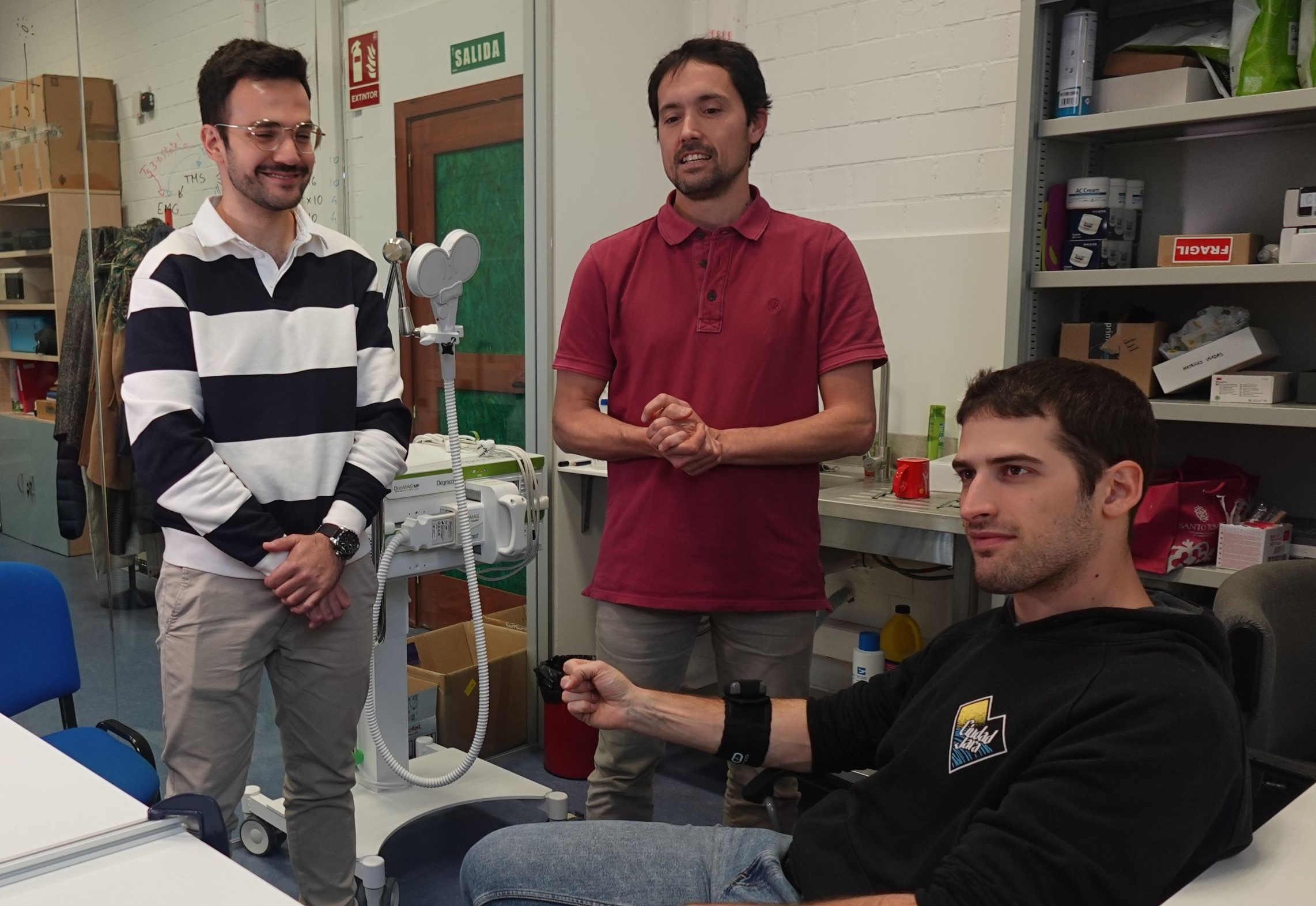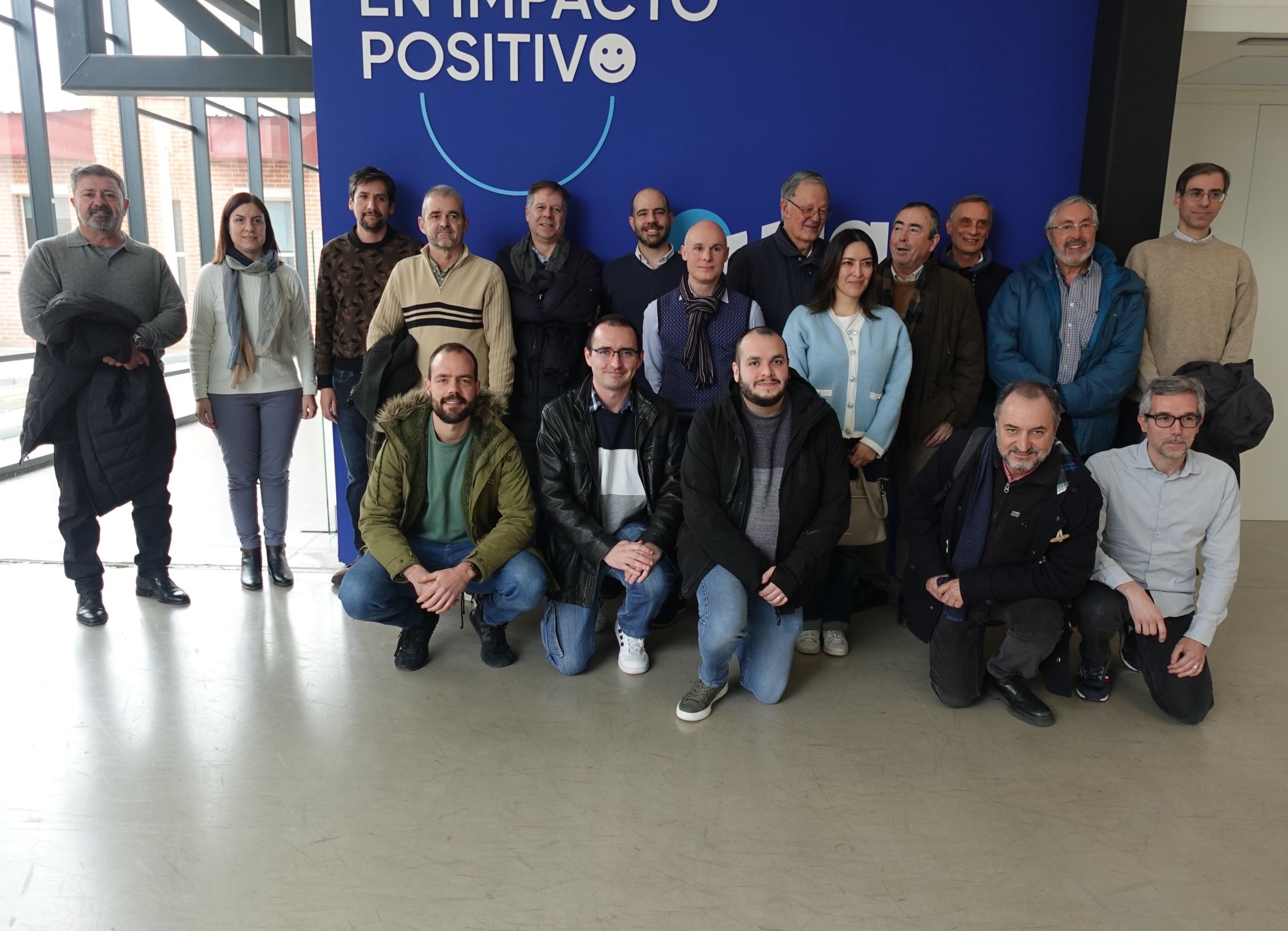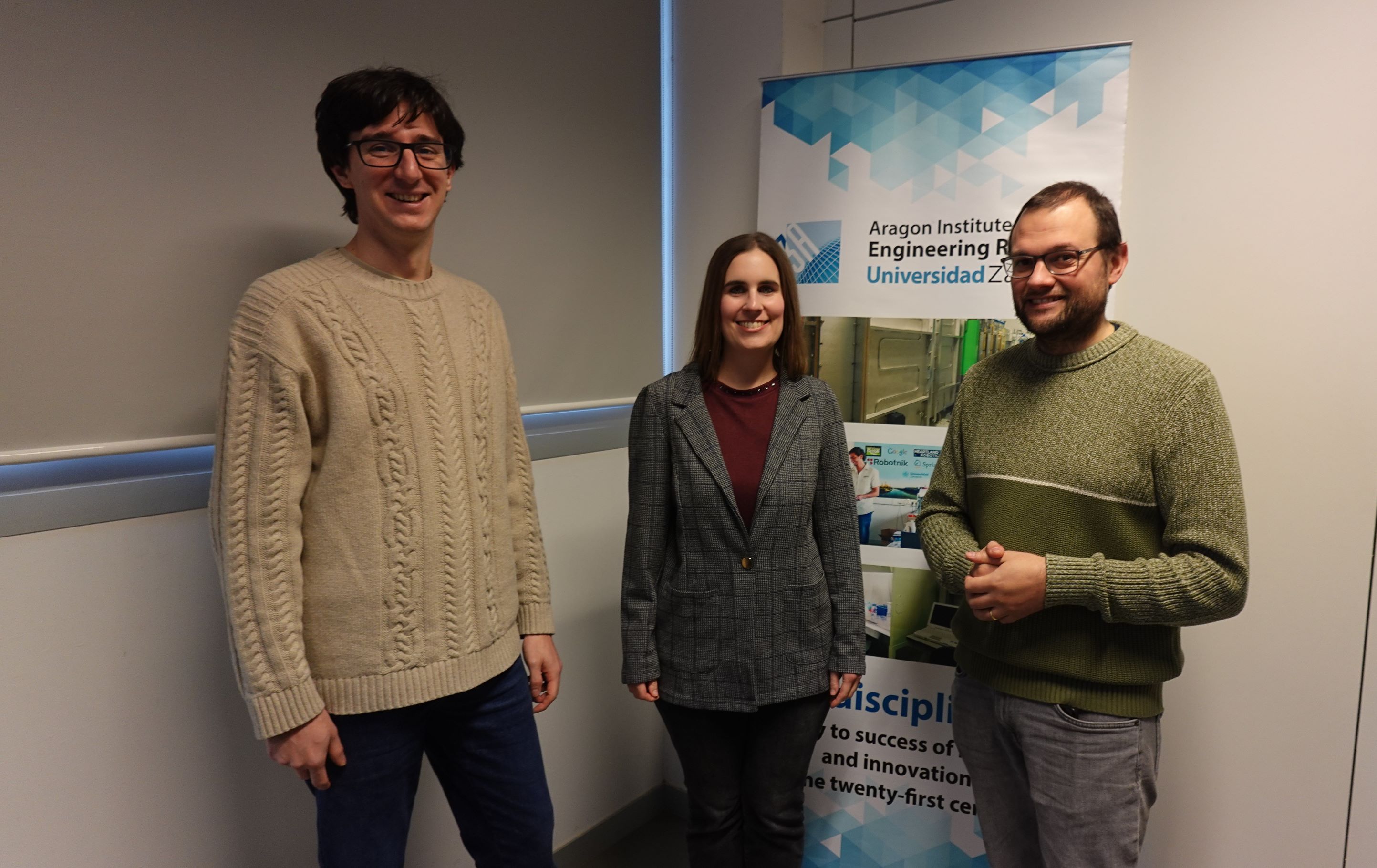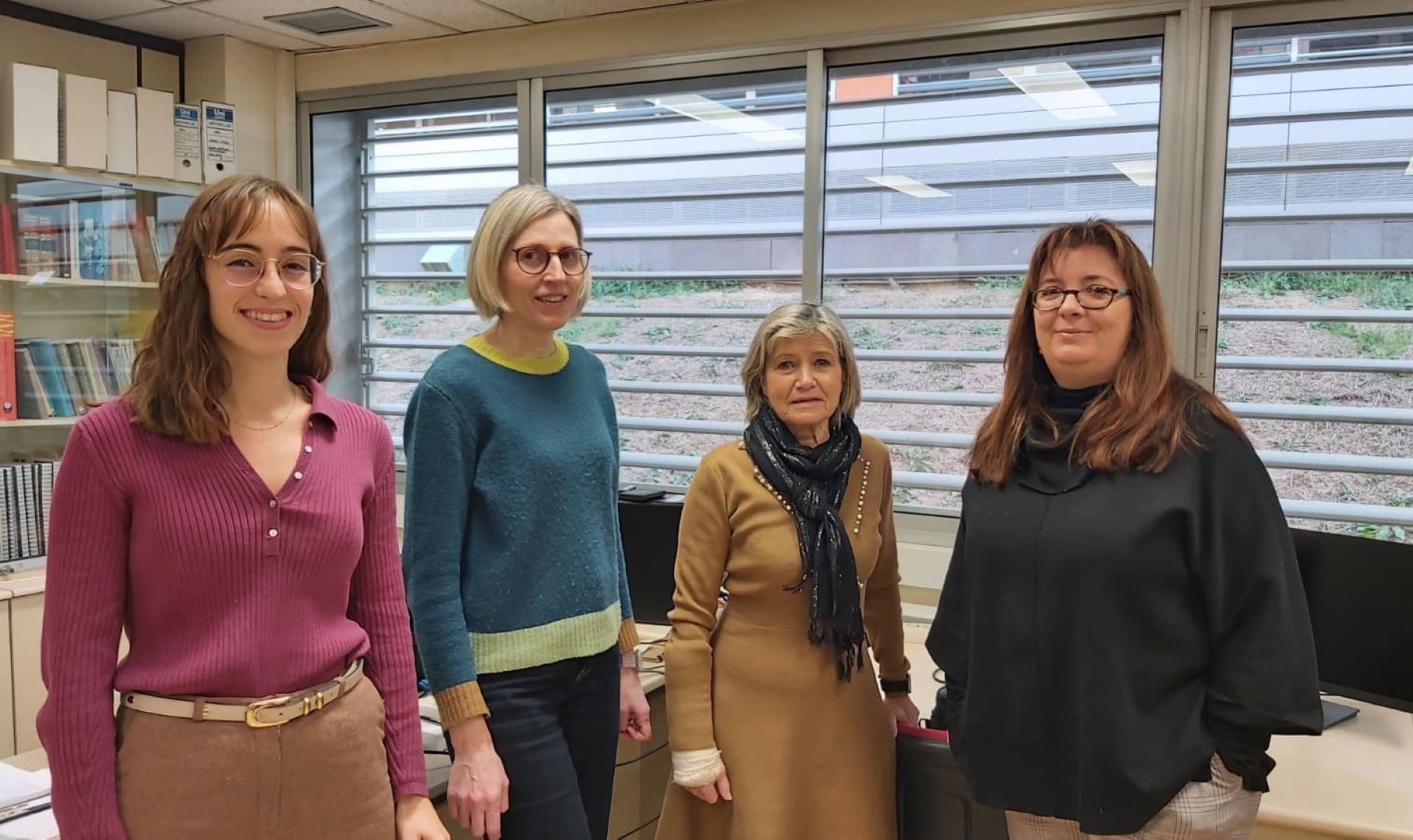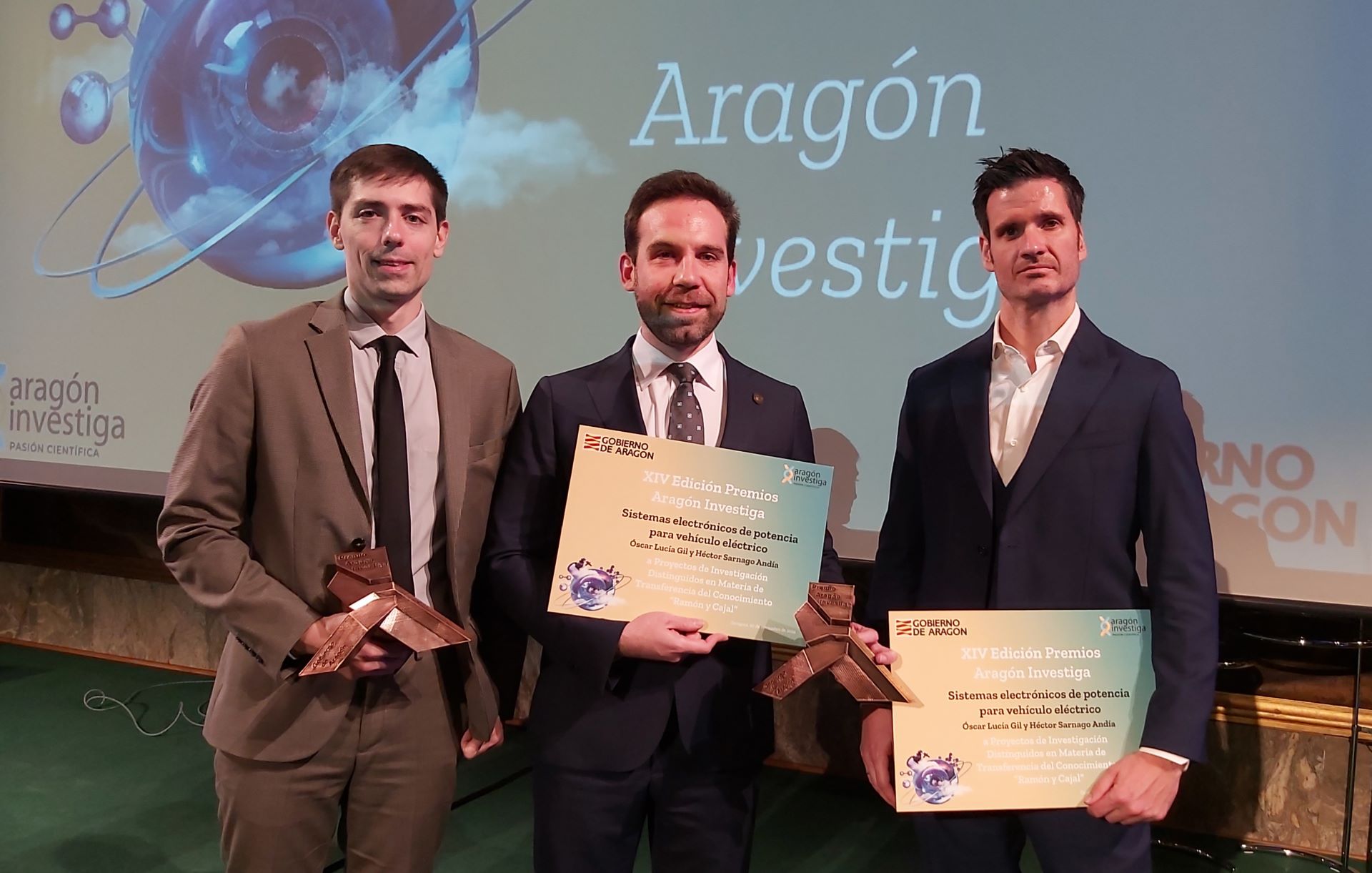
Óscar Lucía Gil and Héctor Sarnago Andía, researchers from the Power Electronics and Microelectronics Group (GEPM) of the I3A, received yesterday the Aragón Investiga ‘Ramón y Cajal’ Award for their results in knowledge transfer. The ‘Blanca Catalán de Ocón’ Youth Award went to Manuel Bailera Martín from the Energy and CO2 group (ECO2).
The GEPM research group specialises in processing electrical energy as efficiently as possible, which is very important both from an environmental and cost point of view, especially nowadays when more than 70% of electrical energy is processed with electronic power converters. This is applied in three lines of work: electric vehicles, induction heating systems, where they work mainly with the BSH group, and biomedical applications, in electroporation systems for cancer treatment and in systems for disinfecting prostheses by induction heating.
Its scientific lines and the transfer to industry and society have had a high impact. The leadership in scientific production in the field of induction heating systems stands out. This has led to the University of Zaragoza being recognised by Clarivate as the world's leading institution in research into domestic appliances.
The 14th edition of the Aragón Investiga Awards, awarded by the Government of Aragon in recognition of researchers and organisations for their contribution to research and knowledge transfer, was held yesterday in Zaragoza in a ceremony presided over by the Regional Minister of Employment, Science and Universities, Claudia Pérez Forniés, together with the Director General of Science and Research, Pilar Gayán.
Óscar Lucía and Héctor Sarnago received this award at the gala that took place at the Caja Rural de Aragón. In their speech they spoke of their contributions to the advancement of Aragonese society, ‘we have tried to do our bit and, undoubtedly, this award encourages us to continue working with dedication and intensity as we have done so far’.
The Aragón Investiga Award recognises transfer work in the area of electric vehicles. The work carried out in recent years with various national and international companies has allowed them to attract important economic resources for the University of Zaragoza, to develop electronic technologies in the Aragonese capital, ‘unthinkable a few years ago and to transfer them to industry to create jobs and products that roll halfway around the world making cars more economical, efficient, more powerful and environmentally friendly’, said Óscar Lucía.
The work over such a long period of time has made it possible to train people in the latest electronic technologies applied to electric vehicles, equip laboratories, carry out internships or final projects. ‘The transfer activity, when combined with the research and teaching work of the university professor, has a multiplying effect of impact, which should be promoted and exploited to the maximum", Óscar Lucía emphasised, while encouraging the Government of Aragón and the University of Zaragoza “to continue supporting transfer, and to promote it, supporting it with greater economic and management facilities”.
Before concluding his speech, he also had a word for the Aragon Institute for Engineering Research (I3A) and the Office for the Transfer of Research Results, ‘for their fundamental role in the conception and management of the award-winning project’ and stressed the importance of supporting and strengthening these services.
Aragón Investiga Award for Young People ‘Blanca Catalán de Ocón’:
Manuel Bailera, PhD in Physics, was the winner in the category for young people. Bailera is a researcher at the I3A of the University of Zaragoza. He was awarded a Marie Curie Individual Fellowship and his extraordinary scientific career is focused on the decarbonisation of industry through the use of renewable energies. He has spent more than two years in five different countries and is leading a research project to carry out the first experiments on decarbonisation technologies in blast furnaces.
It is part of the Energy and CO2 (ECO2) research group, whose lines of work focus on the use of renewable energies and thermochemical energy storage systems and on the improvement of CO2 reduction, capture, transport, storage and utilisation processes in those applications where renewable generation is not currently possible.
Further information:
Grupo de Energía y CO2, ECO2
